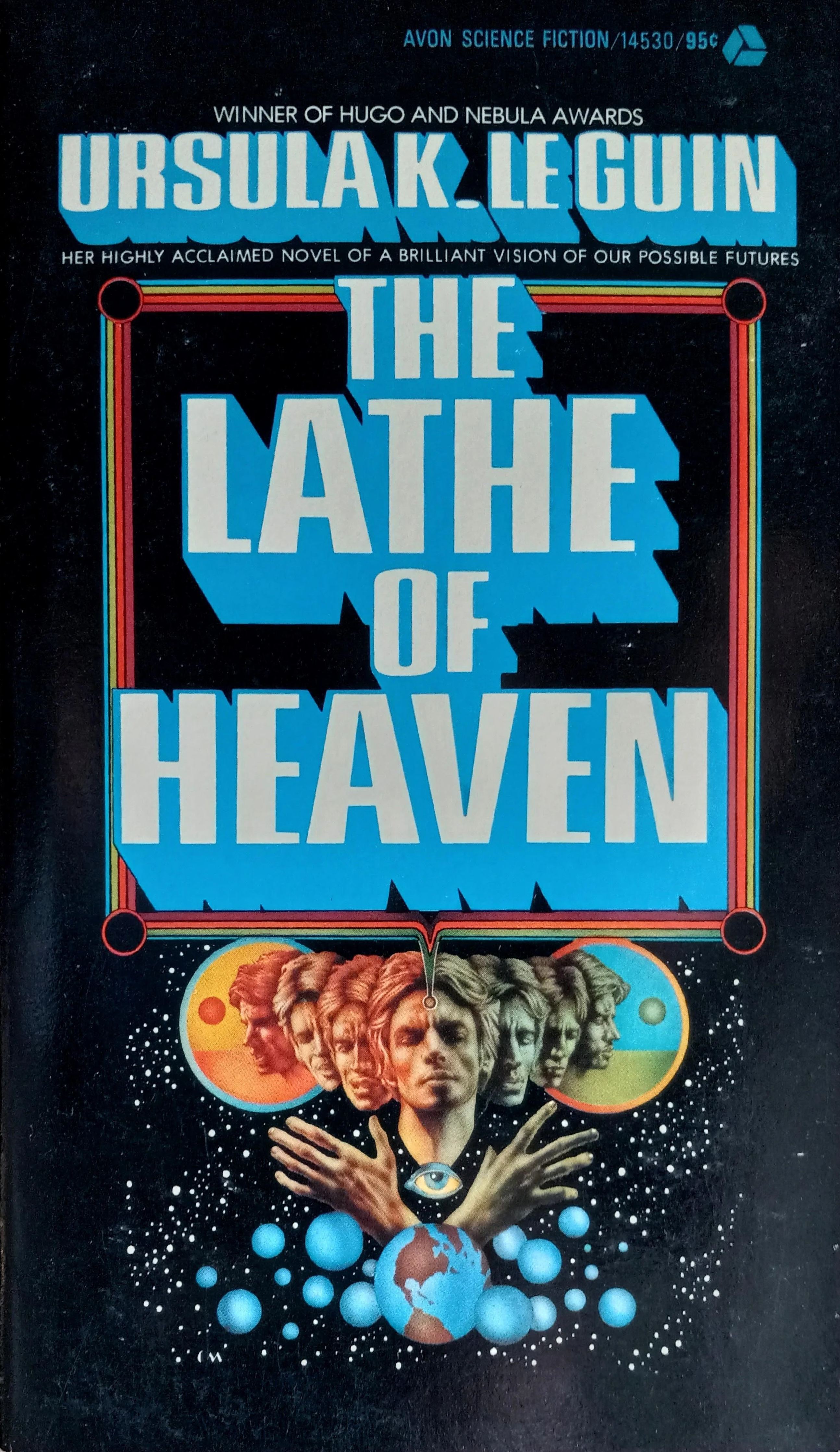The Lathe of Heaven


Finished — 2024-10-09
Started — 2024-09-29
While in Seattle for work, I met up with my best bookfriend and we walked to the Elliott Bay Bookstore. I invited him to choose any book in the store for me to buy and bring home, and he found Le Guin’s Lavinia. (We had an existing connection over her Always Coming Home, which we’d read through together a few years back.) Not far from it on the shelf was a Library of America compendium of five novels spanning her career and culminating in Lavinia, her last. So I chose that superset and committed to reading through them all. This was the first in the collection, from 1971, a sweet spot in the New Age era that I’d been freshly interested in since reading Anthony’s autobiography in which he eye-rollingly claimed that Le Guin had won a Nebula that was rightfully his; and had been craving more of since discovering Priest’s Inverted World.
In any case, the experience was thrilling from the level of the sculpting of individual sentences, all the way up to the Taoist theme running through the whole thing. I felt the moral questions and frequently paused to contemplate how one might even begin to formulate an algorithm for answering them.
“Come on up with me,” he said. “It’s raining already.” In fact it was, the endless warm drizzle of spring— the ice of Antarctica, falling softly on the heads of the children of those responsible for melting it."
The moral architecture of problems that extend beyond the current universe, or even planet: Is an ordinarily immoral act moral when it shifts the entire existence that generated our moral foundations in the first place?
I need you to the extent that-if your sense of obligation to me as a friend, and to the pursuit of knowledge, and to the welfare of all humanity, isn’t sufficient to keep you here-then I’m willing to compel you to serve a higher cause. If necessary, I’ll obtain an order of Obligatory Ther—of Personal Welfare Constraint. If neces-sary, I’ll use drugs, as if you were a violent psychotic. Your refusal to help in a matter of this importance is, of course, psy-chotic. Needless to say, however, I would infinitely rather have your free, voluntary help, without legal or psychic coercion. It would make all the difference to me."
This imagery:
One of these shops under the ramp was a secondhand store; the sign above the windows said ANTIQUES and a poorly lettered, peeling sign painted on the glass said JUNQUE. There was some squat handmade pottery in one window, an old rocker with a motheaten paisley shawl draped over it in the other, and, scattered around these main displays, all kinds of cultural litter: a horseshoe, a hand-wound clock, something enigmatic from a dairy, a framed photograph of President Eisenhower, a slightly chipped glass globe containing three Ecuadorian coins, a plastic toilet-seat cover decorated with baby crabs and seaweed, a well-thumbed rosary, and a stack of old hi-fi 45 rpm records, marked “Gd Cond,” but obviously scratched. Just the sort of place, Orr thought, where Heather’s mother might have worked for a while. Moved by the impulse, he went in.
These unconventional moments of infatuation:
“This is Heather Lelache,” said a soft, suspicious alto. An irrelevant and poignant sensation of pleasure rose in him, like a tree that grew up and flowered all in one moment with its roots in his loins and its flowers in his mind. “Hello,” he said again.
He liked the way she began her fierce, scornful sentences so often with a weak, conciliatory “well.” She cut the ground out from under them before they ever got going, let them hang unsupported in the void. She had courage, great courage.